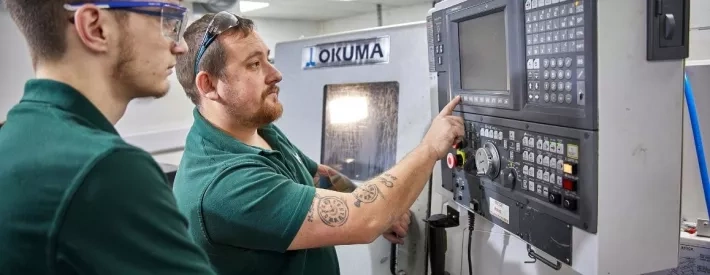Why mentoring matters

In a busy workshop, it’s easy to focus on the tasks at hand and overlook the importance of supporting the people doing them. Whether it’s an apprentice finding their feet or a long-serving tech ready for the next challenge, giving staff the right guidance and encouragement can make a huge difference to their confidence, development and future.
That’s where mentoring comes in. It’s a simple but meaningful way to help people grow. At its heart, mentoring is about creating time and space for honest conversations, practical support and shared learning. It doesn’t have to be formal or expensive. In fact, some of the best mentoring happens in everyday settings, built on trust, experience and a willingness to help someone else along the way.
The motor trade already has a strong culture of sharing skills and learning on the job. Mentoring builds on that, turning it into something more intentional. It’s not just for people new to the industry either. Mentoring can be just as valuable for experienced staff who are taking on new responsibilities, returning to work after a break, or wanting to build their confidence in a different part of the business.
Good mentoring can help someone work out what they want from their career, develop new skills and feel genuinely supported. For employers, it can lead to stronger teams, better performance and a workplace where people want to stay. At a time when recruitment and retention are big challenges, those things really matter.
If you’re thinking of setting up mentoring in your team, you don’t need to overthink it. Start by looking at who might make a good mentor, and ask your teams whether they’d be interested in being someone’s mentor. They don’t need to be the most senior person in the room, but they do need to be someone others can talk to. Someone who’s a good listener, who’s happy to share what they’ve learned, and who wants to help others succeed.
Pairing them with someone newer to the business, or someone looking to grow in a certain area, can work really well. Set aside regular time for a catch-up – even 30 minutes every couple of weeks can have a big impact. It’s a chance to talk through any challenges, share ideas, and think about next steps. A few conversation starters can help if people aren’t sure where to begin. Think about things like goals, career paths, or how to handle tricky situations in the workshop or with customers.
Mentoring also builds leadership skills in mentors themselves, giving them confidence, responsibility and a stronger sense of purpose. It’s not just support for others – it’s development for both sides.
It’s important to be clear that mentoring isn’t about managing performance. It’s not a tick-box exercise, and it’s definitely not about telling people what to do. It’s about listening, supporting and helping someone figure things out for themselves. That’s what builds trust, and that’s when mentoring really works.
You don’t need a huge programme or a dedicated budget. You just need people who care about each other’s progress. Celebrating small wins along the way can help keep the momentum going, and recognising the role of mentors shows you value their input too. Mentoring shows people that they matter. It helps create a culture where people feel supported, and where learning never stops. For workshops and garages of all sizes, it’s a smart, sustainable way to grow talent and strengthen teams.




